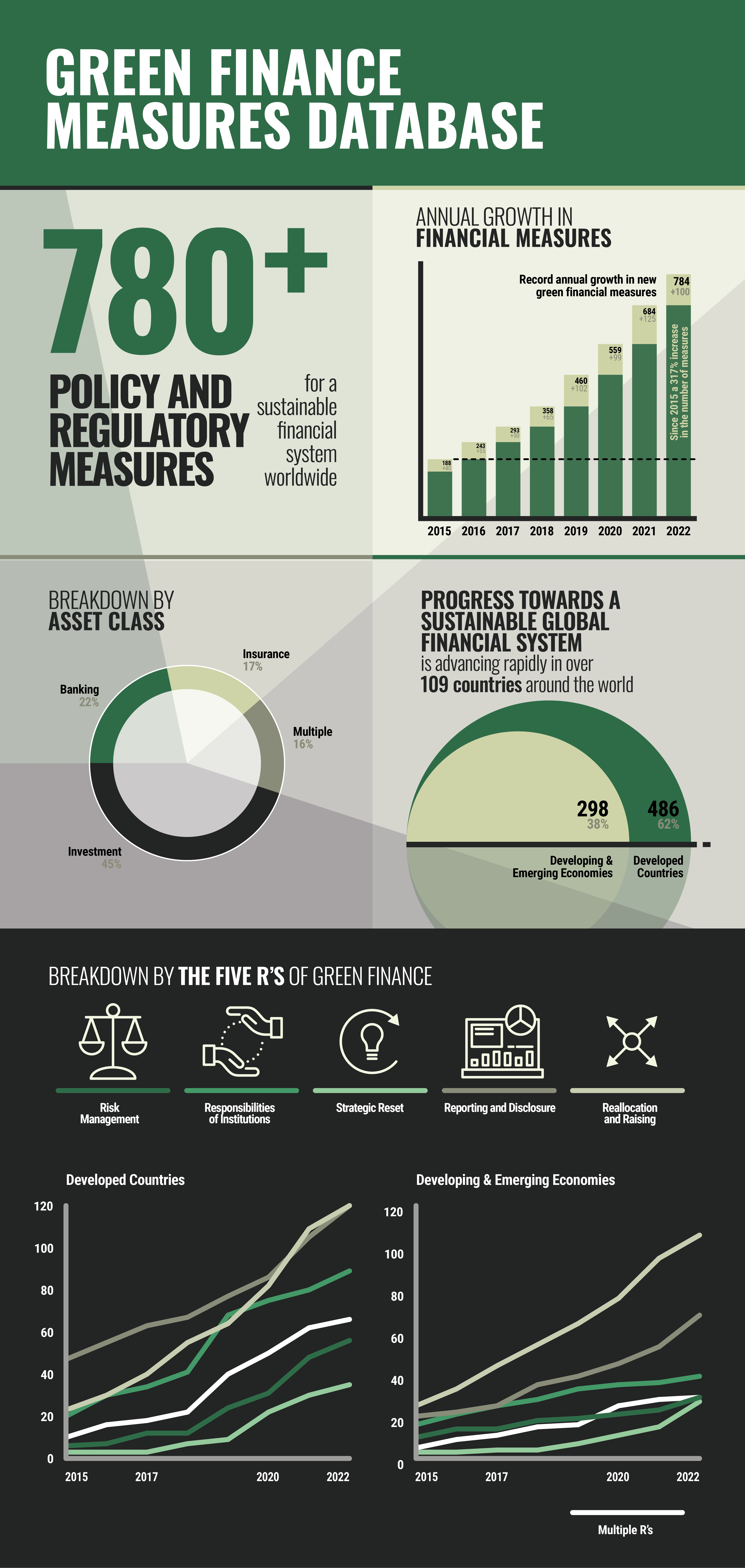
Policies and Regulations

In July 2022, the Financial Markets Authority of New Zealand (FMA) - Te Mana Tātai Hokohoko published a review of managed funds and KiwiSaver funds to examine how they incorporate non-financial factors (e.g responsible, green and ESG) in their financial products so called integrated financial products (IFP)

On 29 September 2022, U.S. Federal Reserve Board announced to implement a pilot exercise on climate scenario-analysis for six large banks.
In September 2022, European Central Bank (ECB) released a paper on analytical framework to perform a status-quo assessment of the disclosure of climate change risks in rating methodologies and ratings reports by selected credit rating agencies.

In October 2022, the Department of Finance updated the Ireland for Finance strategy with a lifespan of 2026 in respect to the development of the international financial services sector.

The Central Bank of Mongolia submitted Monetary Policy Guidelines for 2022 which was approved by the Parliament of Mongolia on 18 November 2021. The Monetary policy introduces addressing climate change and sustainable finance as one of seven priority areas.

U.S. Department of Treasury made a USD 1 billion loan agreement for multilateral trust fund named Clean Technology Fund (CTL) to support the development of low carbon technologies in developing countries.

In April 2022, Bucharest Stock Exchange with the partnership of European Bank for Reconstruction and Development (EBRD) developed ESG Reporting Guidelines for issuers.
In May 2022 Euronext released its updated ESG Reporting Guide - 1.5°C Target for the issuers of its seven regulated markets, including Belgium, France, Ireland, Italy, the Netherlands, Norway and Portugal.

In July 2022, National Stock Exchange of India (NSE) launched Integrated Guide to Business Responsibility & Sustainability Report (BRSR) at sectoral level.

In 2022, the Athens Stock Exchange revised its ESG Reporting Guide based on the changes in legislations and sectoral trends.
